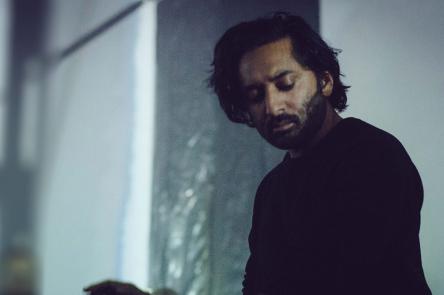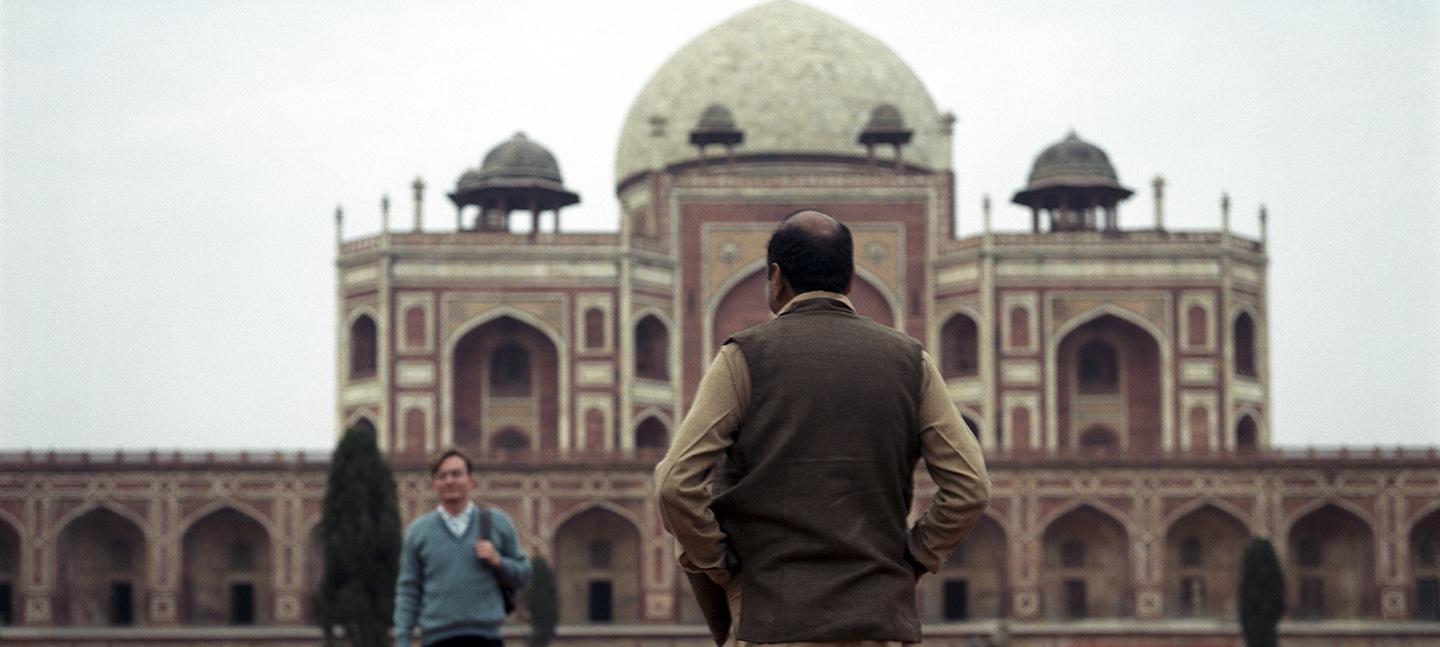
Artist Sunil Gupta discusses his photographic series Exiles and Mr Malhotra's Party, in relation to themes explored in the online exhibition Unquiet Moments: Capturing the Everyday, with art historian Fiona Anderson.

Artist Sunil Gupta discusses his photographic series Exiles and Mr Malhotra's Party, in relation to themes explored in the online exhibition Unquiet Moments: Capturing the Everyday, with art historian Fiona Anderson.
In 1986, Sunil Gupta was commissioned by The Photographer’s Gallery to document the lives of gay men in Delhi. The resulting photographs, which feature a group of anonymous volunteers, provide visual evidence of private moments of love and friendship that typically went undocumented. Exiles has been described by Gupta as ‘staged documentary’, originating from an activist imperative to create images of a community he felt ‘just didn’t seem to exist’ within cultural production. When Gupta returned to India in 2007, he found the younger generation more willing to identify themselves. In Mr Malhotra’s Party, named individuals were photographed in spaces they live and work in, inscribing their presence as within the city’s social scene and family structures.
The talk places these two series in dialogue, exploring the continuities and differences between both bodies of work. Sunil and Fiona discuss the activist impulse behind both series, Gupta’s photographic process, and the reception of these images in relation to mainstream coverage of queer communities in India.
This talk was part of a series of events programmed around Unquiet Moments: Capturing the Everyday, an online exhibition of images and objects that capture the small wonders and disappointments, the intimate joys and tragedies, that shape our lives. As diaries of personal experience, portraits of families and communities, or traces of loss, these works of art call us to reflect upon the many ways in which we construct archives of our lives and memories.
Sunil Gupta is a Canadian citizen, (b. New Delhi 1953) MA (Royal College of Art) PhD (University of Westminster) who has been involved with independent photography as a critical practice for many years focusing on race, migration and queer issues. His recent show (with Charan Singh), Dissent and Desire was at the Contemporary Art Museum, Houston and the Kochi–Muziris Biennale, Kochi, India 2018 and his latest book is Christopher Street 1976, Stanley Barker 2018. His work has featured in many important group shows including Paris, Bombay, Delhi… at the Pompidou Centre, Paris 2011 and Masculinities at Barbican, London in 2020.
Dr Fiona Anderson is Senior Lecturer in Art History in the Fine Art department at Newcastle University. Her work explores LGBTQ social and sexual cultures and art from the 1970s to the present with a particular interest in practices of gentrification and preservation, queer world making practices and the politics of urban space, mostly in the USA and the UK. She is the author of Cruising the Dead River: David Wojnarowicz and New York’s Ruined Waterfront (University of Chicago Press, 2019).
The Courtauld and Somerset House collaborative digital programme is supported by